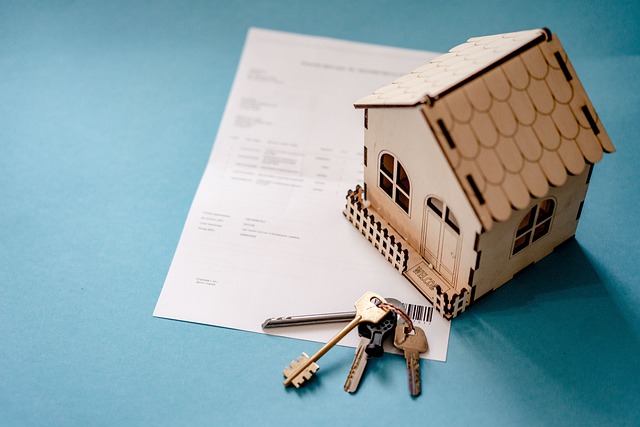The rise of e-commerce has brought significant changes to retail, increasing operational risks for online businesses. Specialized Property Insurance is crucial to mitigate these threats, offering protection against physical damage, cyberattacks, and data breaches. It covers essential assets like warehouses, equipment, and technology infrastructure, ensuring business continuity and financial stability. By evaluating specific risks, asset values, and policy terms, e-commerce businesses can select comprehensive coverage tailored to their needs. Efficient claims handling, as demonstrated by real-world case studies, further enhances the value of Property Insurance. The future of e-commerce demands adaptable Property Insurance solutions, leveraging technology to address emerging challenges like cyber risks and supply chain disruptions, with personalized pricing models likely to emerge.
In the dynamic landscape of e-commerce, understanding property risk coverage is paramount. This article delves into the unique operational risks inherent to online retail and explores the pivotal role of property insurance in risk management. We dissect common property damages, analyze various coverage types, guide insurers through assessing insurability, and highlight key considerations when selecting policies. Additionally, we present case studies showcasing effective claims handling and discuss emerging trends in e-commerce property insurance, emphasizing its evolving significance.
Understanding E-commerce Operations and Their Unique Risks

E-commerce has transformed traditional retail, offering unprecedented convenience and global reach. However, this digital shift brings novel operational risks that require specific attention when it comes to property insurance coverage. Online businesses face unique challenges such as data breaches, cyberattacks, and rapid changes in consumer behavior, all of which can impact physical assets like servers, inventory, and even real estate.
Understanding these risks is crucial for businesses to make informed decisions about their property insurance policies. Comprehensive coverage should protect against physical damage, theft, and loss due to natural disasters. Additionally, given the sensitive nature of customer data stored within e-commerce platforms, cyber liability coverage becomes essential. This ensures that businesses are shielded from potential financial losses arising from hacking incidents or unauthorized access to critical information.
The Role of Property Insurance in E-commerce Risk Management

In the dynamic landscape of e-commerce, where transactions occur virtually and inventory can be scattered globally, property insurance plays a pivotal role in risk management. It serves as a shield against unforeseen events that could disrupt operations, damage goods, or cause financial losses. By thoroughly insuring physical assets like warehouses, equipment, and technology infrastructure, businesses ensure continuity and mitigate the financial impact of potential hazards.
Property insurance is not merely about covering structural damages; it encompasses a wide range of perils including fire, theft, natural disasters, and even cyber attacks. This comprehensive coverage enables e-commerce businesses to focus on growth and innovation, knowing that their investments are protected. Moreover, property insurance often includes business interruption clauses, ensuring financial stability during periods of disruption, thereby fostering a resilient and adaptable operational environment.
Common Property Damages Faced by Online Retailers

Online retailers face unique property risks that can stem from various sources, including data breaches, cyberattacks, and even physical damage to their facilities. Common Property Damages include loss or theft of inventory, damage to equipment due to power outages or technical failures, and structural damage to buildings from natural disasters or vandalism.
These incidents can lead to significant financial losses, interruptions in business operations, and potential legal liabilities. Property insurance plays a crucial role in mitigating these risks by providing coverage for the physical assets of e-commerce businesses, such as inventory, equipment, and buildings. It offers peace of mind, ensuring that online retailers are protected against unforeseen events that could disrupt their operations and financial health.
Types of Property Coverage for E-commerce Businesses

E-commerce businesses, like any other enterprise, face unique risks that require tailored property insurance solutions. The primary types of property coverage for these operations include physical damage protection and business interruption coverage. Physical damage insurance safeguards against losses arising from events like fire, theft, vandalism, or natural disasters, ensuring the replacement or repair of essential assets such as inventory, equipment, and technology.
Business interruption coverage, on the other hand, compensates e-commerce businesses for lost revenue and ongoing expenses during periods when operations are disrupted due to covered property damage. This type of coverage is crucial for maintaining financial stability during recovery periods, enabling businesses to continue serving their customers with minimal disruption.
Assessing Your E-commerce Operation's Insurability

Assessing the insurability of your e-commerce operation is a crucial step in securing adequate property risk coverage. Start by evaluating the physical assets within your facility, including inventory, equipment, and infrastructure. Identify potential risks such as fire, theft, natural disasters, or vandalism that could impact these assets. Conducting a thorough risk assessment will help determine the type and extent of property insurance needed to mitigate these hazards effectively.
Consider factors like security measures in place, backup power systems, and emergency response plans. Evaluate your operational continuity and business interruption needs, as these will influence the scope of coverage required. Additionally, examine legal requirements and industry standards for property insurance in e-commerce, ensuring compliance to avoid vulnerabilities in your risk management strategy.
Key Considerations When Choosing a Property Insurance Policy

When choosing a property insurance policy for your e-commerce business, several key considerations come into play. First and foremost, assess the specific risks associated with your operations, including potential threats like natural disasters, theft, or damage to inventory and facilities. Understanding these risks will help you identify the appropriate coverage limits and deductibles that align with your business needs.
Additionally, consider the value of your assets, both tangible and intangible. This includes physical property, equipment, intellectual property, and data. A comprehensive property insurance policy should offer adequate protection for all these aspects. It’s also crucial to evaluate the policy’s terms, conditions, and exclusions to ensure they are clear and favorable. Compare different insurers’ offerings to find a policy that provides broad coverage at a competitive price.
Case Studies: Successful Claims Handling in E-commerce

Successful claims handling is a critical aspect of property insurance for e-commerce businesses, demonstrating its value in mitigating potential financial losses and maintaining business continuity. Case studies illustrate several instances where prompt and efficient claim management has made a significant difference. For instance, a leading online retailer experienced a data breach, leading to a cyberattack that compromised customer information and caused a temporary shutdown of their platform. The retailer’s property insurance provider swiftly stepped in, covering the costs of forensic investigations, legal fees, and credit monitoring services for affected customers. This rapid response not only helped the business recover quickly but also enhanced its reputation among consumers.
Another compelling case involves an e-commerce startup that suffered a catastrophic fire at its distribution center, resulting in extensive property damage and inventory loss. The property insurance policy covered the rebuilding costs, allowing the company to rebuild and expand its operations faster than expected. This support enabled the startup to maintain its customer base and quickly regain market share, showcasing how effective claims handling can be a game-changer for businesses facing unexpected disruptions.
Future Trends and Innovations in E-commerce Property Insurance

The future of e-commerce is set to be even more dynamic and diverse, with emerging trends like omnichannel retailing, rapid global expansion, and increased customer expectations. These shifts present both opportunities and challenges for businesses, emphasizing the need for adaptable Property Insurance solutions. Insurers are responding by incorporating advanced technologies into their risk assessment models, enabling more precise predictions of potential losses. Artificial intelligence, machine learning algorithms, and data analytics are being leveraged to analyze vast amounts of consumer behavior data, product trends, and market fluctuations, thereby enhancing the accuracy of risk evaluations.
Furthermore, as e-commerce continues to blur physical and digital boundaries, traditional Property Insurance policies may evolve into comprehensive packages that cater to the unique needs of online retailers. This could involve expanded coverage for cyber risks, supply chain disruptions, data breaches, and even the increasing threats of ransomware. Insurers are also likely to explore innovative pricing models based on real-time risk assessment, offering more personalized and cost-effective solutions for e-commerce businesses operating in a rapidly changing landscape.
